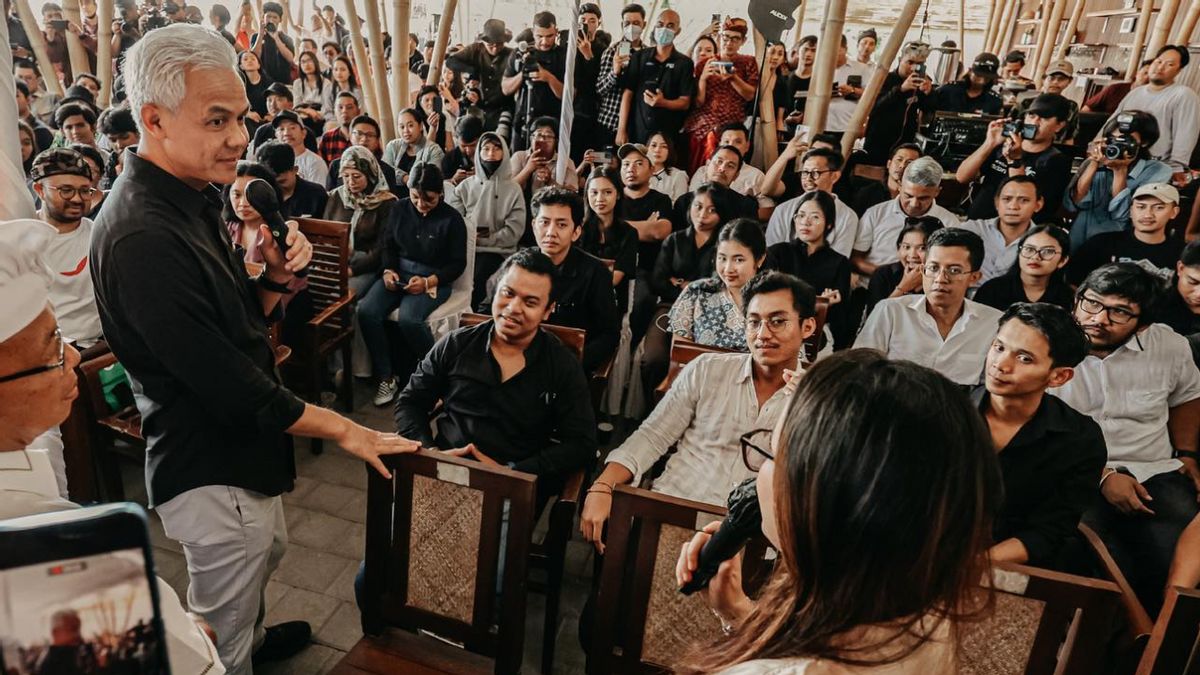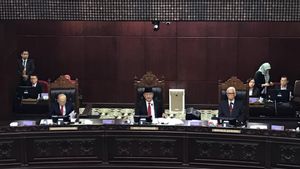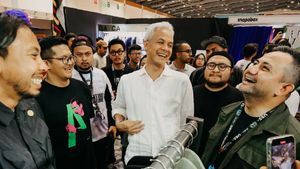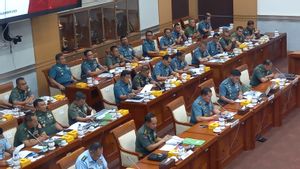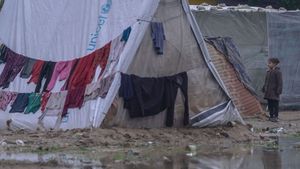JAKARTA - Candidate for president (candidate) Ganjar Pranowo said Indonesia could compete with a number of countries in ASEAN such as Vietnam, Thailand, India to become a world food barn. He sees that there is potential but farmers must still be considered by the government.
This was conveyed by Ganjar during a speech as a presidential candidate on the direction and strategy of foreign politics in an event organized by the Center For Strategic And International Studies (CSIS).
Indonesia has the potential to become a world food barn. In Asean, I think Vietnam, Thailand, India around us, China has the ability to produce it and I think including Indonesia," said Ganjar in a CSIS YouTube show, Tuesday, November 7.
"And when we talk about the world's food barns, we try to ensure sustainable food supply in conflict or war situations," he continued.
Ganjar admitted that he had asked for input from many parties to achieve that goal. In terms of production, for example, he has spoken with researchers to business actors such as farmers.
"To professionals, in this case, farmers, what potential do we have," he said, imitating his question when asking for input.
اقرأ أيضا:
From there, Ganjar knew that domestic rice production only reached 5.9 tons per hectare. In fact, research says the rice tonnage rate can reach 12 tons per hectare so that the existing amount needs to be increased.
However, this increase cannot be done just like that. There are a number of steps that must be taken, ranging from modernization to intervention from the government.
"If it can only increase 7 tons, then the production is extraordinary. That means modernization, mechanization, and intervention from the government are needed. Food politics cannot be allowed by farmers, left to farmers, and they just tell them to walk. No. The state must intervene," he said.
Ganjar will also encourage the Logistics Affairs Agency (Bulog) to focus on meeting domestic needs. This is because he often hears complaints about the low price of rice from farmers even though the production costs a lot of money.
"I am the person who encourages in the context of this world food barn, Bulog must be returned to its initial function. So that the basic needs of the state must control, cannot be realized and usually farmers lose," he said.
"I just returned from Palembang this morning and then to West Java, then today I can come here and I met the farmer, 'Mr. Ganjar, our production costs are expensive, why are the purchases so cheap and at this time consumers buying rice very expensive'. Ladies and gentlemen, this is what we must then arrange in the context of national interests," he concluded.
The English, Chinese, Japanese, Arabic, and French versions are automatically generated by the AI. So there may still be inaccuracies in translating, please always see Indonesian as our main language. (system supported by DigitalSiber.id)
